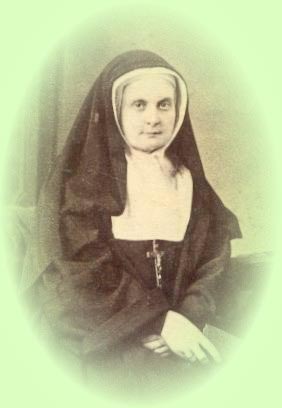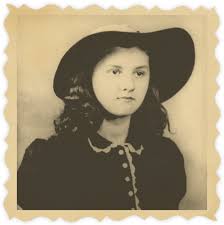


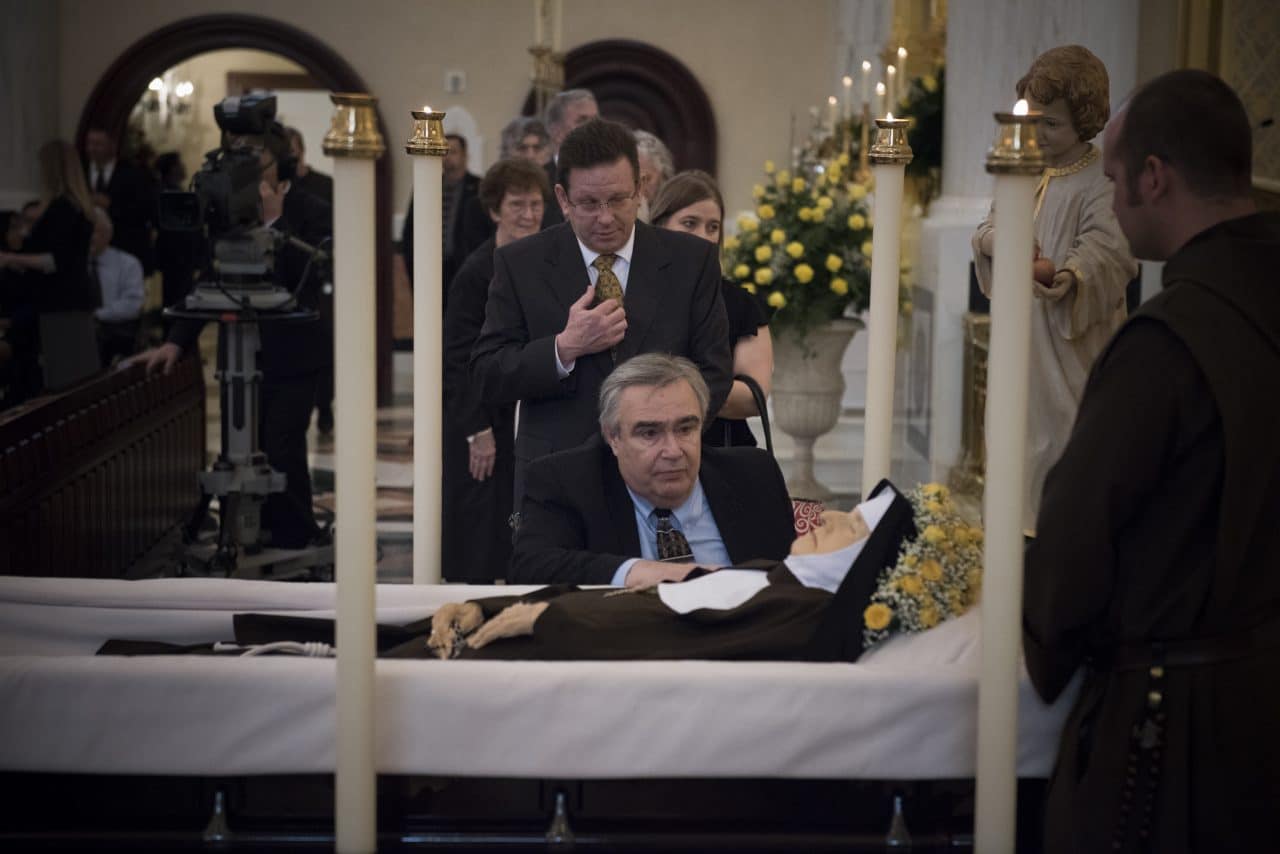
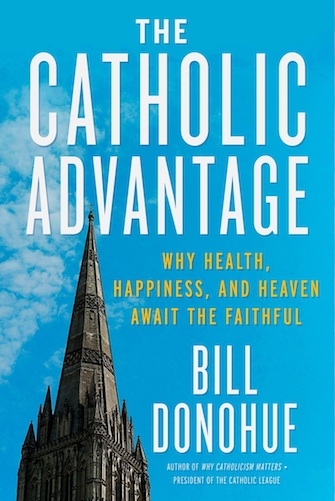
“…Born Rita Rizzo, and reared in Canton, Ohio, Mother Angelica experienced poverty, a broken home, maltreatment, multiple physical ailments, jealousy, backstabbing, betrayal—she was even shot at—but nothing could stop her determination. It does not exaggerate to say that the object of her determination never had anything to do with herself—it always had to do with God.
In her lifetime, Mother established the Poor Clare Nuns of Perpetual Adoration and gave birth to the Franciscan Friars of the Eternal Word and the Sisters of the Eternal Word. She built the Shrine of the Most Blessed Sacrament, as well as the largest shortwave network in the world, and the world’s first Catholic satellite network. Not bad for a high school graduate who had everything going against her.
Her father was abusive, both physically and verbally, and eventually abandoned her. It took such a toll on her that she wondered why God would ever subject a little girl to such a miserable family. It also meant that she missed out on what other kids were used to, so much so that one of her cousins would later say of her, “She was an adult all her life. She never had a childhood.” 82
The nuns she met in school were anything but kind. Their opposition to divorce unfortunately led them to oppose the children of divorce, and this was something the young Rita couldn’t bear (the priests her mother encountered were just as condemning). Some family members were just as cruel, including an uncle who verbally abused her mother so badly that Rita literally threw a knife at him.
Yet there were miracles. There was a time when, at age eleven, she was crossing the street only to see two headlights staring her right in the face. She thought she was dead. Incredibly, she was able to jump high enough that she avoided being hit. The driver called it “a miracle”; Rita and her mother dubbed it a graceful “lifting.”
Her stomach ailments were so bad that she was forced to wear a corset. The doctors tried to help, but to little avail. Then she met a stigmatic, Rhoda Wise, and that’s when things began to change. One day, when she was twenty, a voice told her to get up and walk without the corset, and she did just that. Immediately, her suffering was relieved. Her doctor, of course, insisted it had to do with his treatments, but Rita knew better.
Her mother, Mae, wasn’t too happy when she learned that Rita had decided to enter a Cleveland monastery. After all, she had first been abandoned by her husband, John, and now her daughter was leaving her as well. But Rita had a mind of her own. Even after she entered the monastery in 1944, her mother tried to coax her to leave. She sent an emissary, Uncle Nick Gianfrancesco, to visit her; the pretext was the passing of her grandmother. He was there to convey Mae’s message—please come home right away. But he couldn’t do it. “Are you happy here?” “Oh yeah, Uncle Nick, I am.” 83
Eight years later, in the spring of 1952, Sister Angelica was summoned to the parlor by Mother Clare. She expected to see her mother, or one of her uncles. It was her father. Seated on the other side of the double grille, he was filled with guilt. He asked what Uncle Nick had asked: “Are you happy here?” “Yes, I am,” she replied. She admitted that she felt sorry for him. “For some strange reason,” she said, “I don’t remember having any resentment toward him. I didn’t hate him or love him.”
Her father came back a second time to offer an apology. “I want you to know I’m sorry, and I want your mother to know I’m sorry.” Sister Angelica was stunned. “That was like a million dollars to me, because I didn’t know him well enough to think he could be sorry … and I really wanted to see him again.” But that was not to happen. The cloister rules allowed parents to visit only once every two months, putting her in a tough spot. Her mother gave her an ultimatum: choose me or your father. Mother Clare counseled Sister Angelica to choose her mother, so she wrote her father a letter explaining the situation. He was devastated. Six months later, John Rizzo died of a heart attack. 84
After nine years in the cloister, Sister Angelica took her solemn vows. By that time she enjoyed a reputation for teaching the novices the importance of surrender. She taught them about the example of St. John of the Cross and his “dark night of the soul”—a time when his relationship with God seemed to slip. The lesson to be drawn, she told the sisters, was “complete abandonment to God and [to find] happiness in doing as He wills whether He leads … by suffering or by consolation.” 85
Sister Angelica was not in good health. Her legs and her back were so twisted she could hardly walk (she wore a body cast), leading her to beg God to allow her to walk again in exchange for a promise: she would build a monastery in the South. What she wanted was a “Negro apostolate,” a cloistered community in service to poor blacks. After undergoing spinal surgery, and after being rebuffed initially by her bishop, she got her way; approval was given to build a monastery in Birmingham, Alabama. Then came the hard part—coming up with the money to pay for it.
In 1959, the year before she became Mother Angelica, she spotted an ad in a magazine for fishing lure parts. She decided that the nuns would go into the fishing-lure business; this was the beginning of St. Peter’s Fishing Lures. In 1961, Sports Illustrated honored her with a plaque for her “special contribution to a sport.” Remarkably, the half-crippled nun with no business experience was able to garner national attention for her entrepreneurial acumen. Much more was to come.
Building a monastery in the South in the early 1960s, especially one that would service African Americans, was not exactly a popular exercise. It didn’t take long before local opposition mounted, even to the point of violence. Mother Angelica was shot at one night by one of the protesters (he barely missed). But she persevered and even launched another venture: the Li’l Ole Peanut Company proved to be so successful that by the end of 1968, she paid off all her monastery debt. Over the next decade, she would write books and give talks, managing to walk with an artificial hip.
In 1978, her life was forever altered when she visited a TV studio in Chicago. Instantly, she got the bug: she had to have one of her own. Then came the first of many disappointments dealing with the bishops. When she contacted them about a Catholic TV show, none replied. Undeterred, she secured funding from New York philanthropist Peter Grace. In 1981, she founded EWTN. The rest is history: her shows are translated into many languages, including Spanish, German, French, Ukrainian, Lithuanian, and Korean. In 2011, EWTN took over the National Catholic Register, an influential weekly newspaper.
Everyone who ever worked with Mother Angelica can tell stories featuring her great sense of humor. Father John Trigilio, author and EWTN personality, recalls that when he first met her, she was so humorous that “my sides were hurting.” 86 Sister Mary Agnes, who spent much time with her, said “she had a great sense of humor. She was somebody everybody wanted to be with. Everybody wanted to be with Mother because she was a lot of fun. But, at the same time, she was holy.” 87 Holiness and happiness—the two go together.
I asked Raymond Arroyo, who hosts the EWTN’s flagship show, The World Over, and who has written more authoritatively on Mother Angelica than anyone else, to reflect on her happiness.
“One of the things that most impressed me about Mother Angelica was her constant joy,” Arroyo says. “It didn’t matter whether she was in the middle of some public fracas or battling a life threatening illness—her joy never flagged.” As many others observed, “there was always laughter and lots of humor (it occasionally turned black).” When she had a stroke in 2001, and was suffering, he asked her how she was able to maintain her joy and avoid self-pity and anger, two emotions we might expect of someone in her condition. What she said was so poignant, it induced Arroyo to write it down: “I do what I do because it is the will of God and that alone gives me joy—nothing else.” She distinguished between happiness and joy. “Other things can give me happiness but doing God’s will is my joy.” As Arroyo notes, “She believed that her pain, united with Christ’s, was the foundation of all she accomplished.”” 88
Love,
Matthew
82. See my book review of Raymond Arroyo’s book, Mother Angelica: The Remarkable Story of a Nun, Her Nerve, and a Network of Miracles in the Catholic League journal, Catalyst, October 2005, available online.
83. See p. 46 in Arroyo’s book.
84. Ibid., pp. 63–64.
85. Ibid., p. 69.
86. “EWTN Celebrates Mother Angelica’s 90th Birthday,” Catholic News Agency, April 19, 2013.
87. Joseph Pronechen, “Happy 90th Birthday, Mother Angelica!,” www. ncregister. com, April 20, 2013.
88. Personal correspondence with Raymond Arroyo, November 18, 2013.
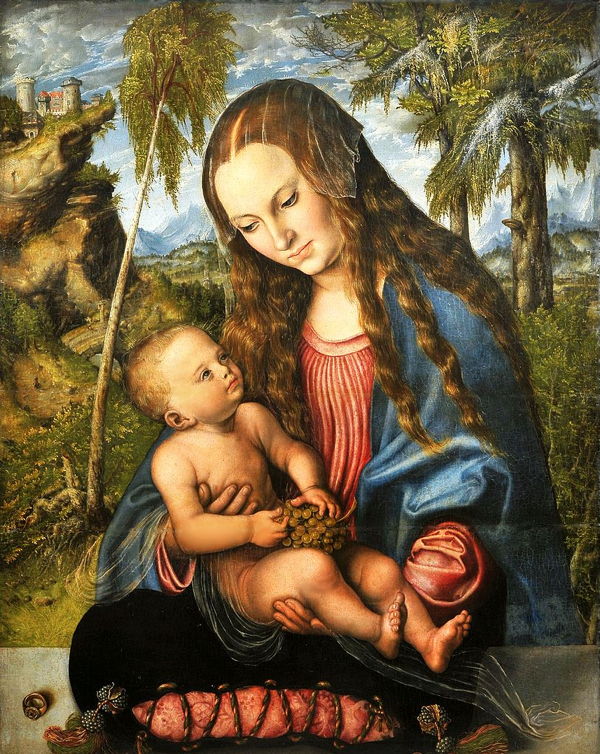

 -Madonna in Glory, Carlo Dolci, circa 1670
-Madonna in Glory, Carlo Dolci, circa 1670












